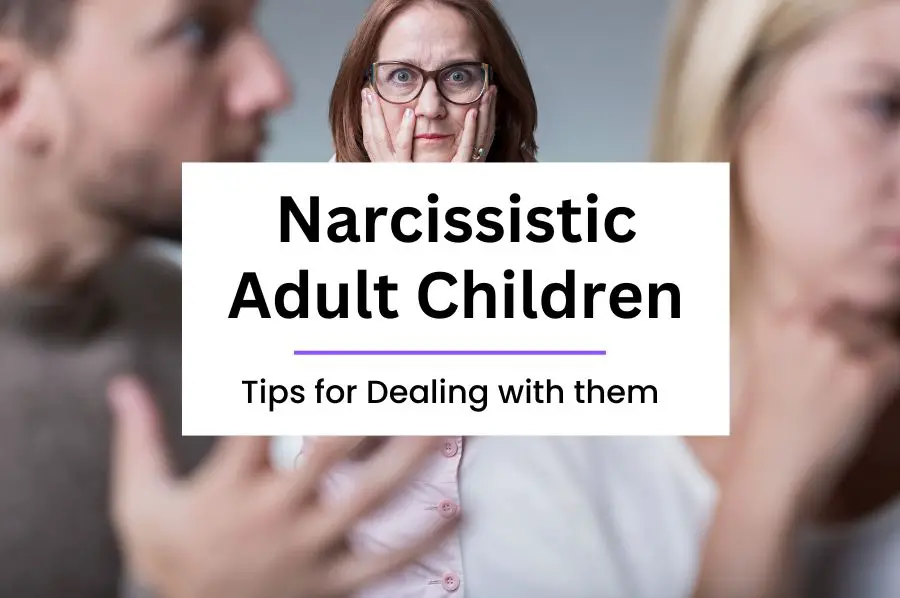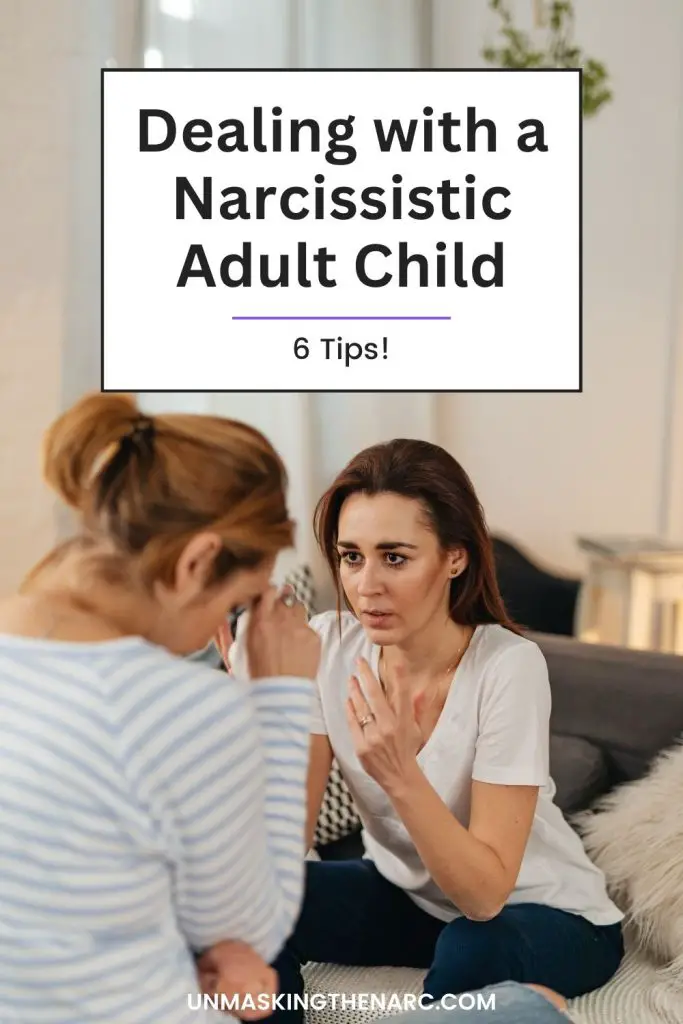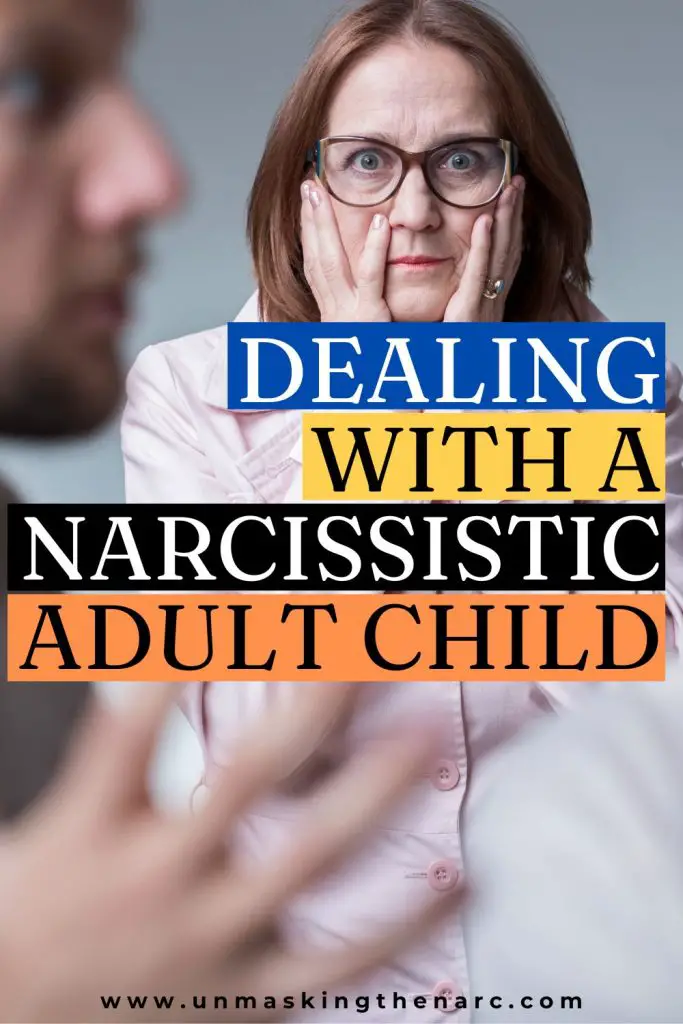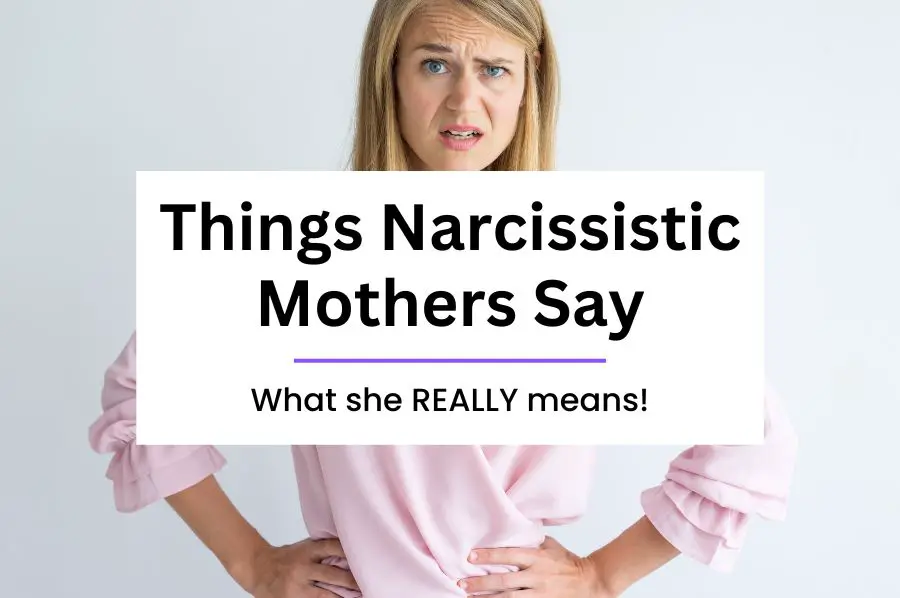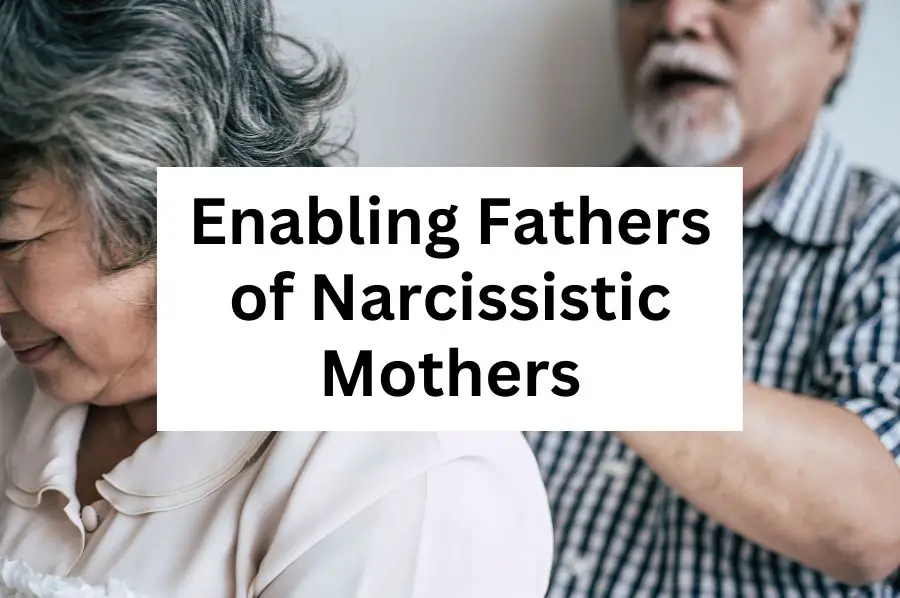If you’ve recognised that you’re dealing with a narcissistic adult child, you will need to have some strategies in place to protect yourself.
The first step is to understand that anyone with Narcissistic Personality Disorder (NPD) is not going to change without years’ worth of intensive therapy, which has about a 1% chance of happening.
Due to the very nature of NPD, they are unable and unwilling to change. The ego has created an entirely fabricated reality whereby they have no flaws and are the centre of the universe.
For the ego’s False Self to remain in existence, the narcissist must be constantly extracting external validation confirming that their fantasy is true and real. If not, their false reality will dissipate into nothingness, since it is no more than a figment of their imagination (which they view as being entirely real).
The ego will fight to the death to stay real and relevant, which means the narcissist will stop at nothing to perpetuate that reality. They must, as it’s a matter of psychological survival.
Now it’s time for you as the parent to arm yourself with some strategies (for your own well-being) to protect yourself against your adult narcissistic child’s self-serving agendas.
This post contains affiliate links, for more information, see our disclosures here.
Dealing with a Narcissistic Adult Child
There is a range of childhood situations that can result in the creation of someone with Narcissistic Personality Disorder. Their environment was such that they were given mixed signals from their caregiver/s, bouncing from one extreme to the other.
Essentially, when they performed or acted in a way that satisfied their caregiver/s they were met with praise, adoration and validation. However, when their caregiver/s did not feel pleased, the child was met with cruelty, abandonment, devaluation or abuse.
For a deeper dive, check out this article on how someone becomes a narcissist.
This is not a judgment on how or why your own adult narcissistic child came to be, but something to ponder for yourself. Sometimes we can look back in hindsight and see our part in how things have played out, while other times we have to accept the things that we could not control.
Moving forward, it’s time to strategise some ways to deal with your adult narcissistic child so that you can still maintain a relationship with them (if you so wish), without losing yourself to their abuse.
Don’t Call Them Out as a Narcissist

Although it might be tempting to call your narcissistic adult child out for what they are, you will not be met with your desired outcome.
You see, the narcissist’s ego simply cannot accept any criticism, because that would mean their whole false reality of being ‘perfect’ and God-like would come crashing down.
So, whenever any negative quality is brought to the narcissist’s attention, it causes a narcissistic injury. To exterminate this piece of evidence that goes against the narcissist’s entire fantasy, that information must be destroyed. This is where the narcissist will project the very things that they are doing back onto you, then line you up in their crosshairs for annihilation.
The only outcome you can expect, when calling out a narcissist, is for the abuse to ramp up and increase in severity and volume. In fact, they’ll probably turn around and call you the narcissist, then smear your name to all and sundry, just to reiterate their false narrative.
Create Boundaries
The best thing you can do when dealing with a narcissistic adult child is to understand that they will not change and create healthy boundaries for yourself.
Examples of healthy boundaries:
- End the conversation if they’re belittling you or making you feel ‘less than’
- Say ‘no’ when you need to say no
- Be available when it suits you, not just because they expect you to be
- Only give resources if you can and want to, not because the narcissist demands it
It’s important to note here that the narcissist will not like your new boundaries one little bit. They’re used to using your insecurities, love and compassion against you as a weapon so that they can manipulate you to get what they want.
“How dare you stop allowing me to siphon you for all of your resources. Don’t you know who I am!?”
The narcissist will continue to outright push through your boundaries if you let them. In their world of entitlement and superiority, they will now see you as the abusive one, because how dare you take away their supply.
This is why you must continue to hold and enforce your boundaries, over and over again. You’re effectively retraining them with how you expect to be treated and what you will no longer tolerate.
| READ: Narcissistic Supply Explained → |
Stop Enabling Their Behaviour
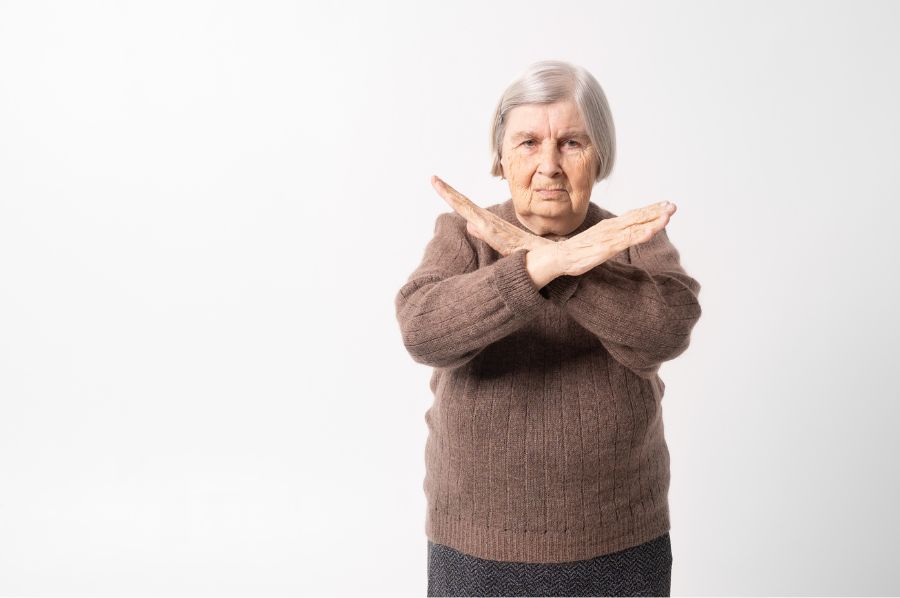
If we’re all being honest here, the main reason that narcissists are able to get away with their atrocious behaviour is because we allow them to.
Now, I’m not saying that it’s your fault that the narcissist does what they do. No, they are a fully-grown adult who is (or should be) responsible for their own actions and reactions.
“I am a perfect, flawless human being who is entitled to whatever I want in life.”
However, due to the nature of narcissism, they will never accept responsibility for their behaviour without years of intensive therapy, because that would destroy their entire False Self.
But, that in no way means that any other human being on this planet needs to accept their behaviour or take on the responsibilities of the narcissist, just because they refuse to do so.
We don’t do the narcissist any favours by enabling their poor behaviour, even though the narcissist will make you feel like you’re abusing them by not doing so.
That’s on them.
How to stop enabling your narcissistic adult child:
- Go ‘no contact’ or reduce contact if they’re too toxic
- Identify their deal-breaker behaviour & don’t hang around for it any more
- Set healthy boundaries & stick to them consistently
- Stop doing so much for them
- Don’t take on their responsibilities
- Don’t play into their victim stories
- Detach yourself from their behaviour
- Don’t defend yourself to the narcissist (it’s just a trap to suck you back into their arena)
- Choose yourself (as hard as that is as the parent)
Limit Time With Them
The more time you spend with a narcissist, the more opportunities they have to manipulate you, devalue you and suck out your life force energy to feed themselves.
Keep your time with the narcissist short and sweet.
Rather than seeing them for a whole day, just catch up for a coffee and keep moving. Make yourself busy so that you only have small pockets of time to spend with them.
This is important for you to establish your new boundaries, plus it helps to build an independent life outside of the narcissist’s dramas, demands and expectations.
Put Yourself First

For far too long you’ve no doubt put the needs of your adult narcissistic child before your own. After all, that’s what narcissists expect us all to do for them. But no more.
They are a fully-grown adult by now and if they don’t have their own life, it’s about time they do.
Just like it’s time for you to start putting your own needs first and filling your cup before anyone else’s. We are no good to anyone else if we are always depleted.
The universe does not reward self-sacrifice. It just gives you more of what you are signalling you deserve.
At the end of the day, we are all individual beings on our own individual journeys. Your first responsibility should always be to yourself because if you don’t put yourself first, no one else is going to do it. And certainly not a narcissistic child!
| READ: Self-care After Narcissism → |
Seek Therapy
If you’ve been dealing with a narcissistic child for a prolonged period of time, you’ve most likely been dealing with emotional and possibly even physical abuse.
As a part of choosing yourself, it’s time to prioritise your healing. The parent-child dynamic is a big one and you will no doubt have many unanswered questions and trauma around your own situation.
Maybe you know what has caused the split in your child’s psyche to have become narcissistic, maybe you don’t. Therapy will be able to help with the knowledge, acceptance and understanding.
Personally, the only strategy that worked for me with dealing with a lifetime of narcissistic abuse was spiritual healing. The complex PTSD was crippling and the only way I was able to gain relief and freedom was to have the trauma shifted out of my energetic field for good.
If spiritual healing is something that resonates with you, I highly recommend the work of Selena Hill (more info below). If not, find a good therapist who’s well-versed in narcissism and who you resonate with.
It’s time to heal yourself and move forward into a more positive life, regardless of your child’s journey.
▶️ VIDEO: 6 Tips for Dealing with a Narcissistic Adult Child
Posts About Narcissistic Children
- How Do Narcissists Treat Their Parents?
- QUIZ: Is My Child a Narcissist?
- QUIZ: Is My Sibling a Narcissist?
- 6 Tips for Dealing with an Adult Narcissistic Child
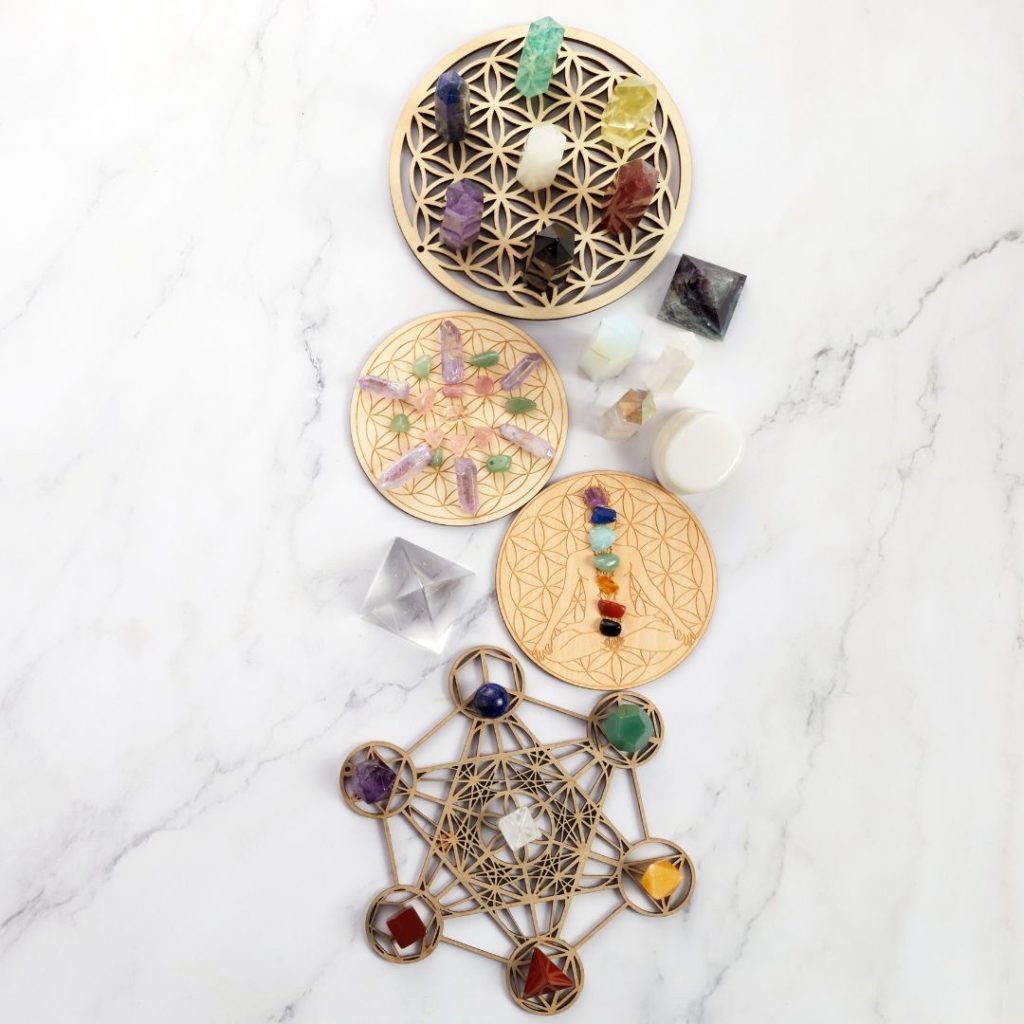
Energetic Healing from
Narcissistic Abuse
If you’ve tried everything to heal but still can’t shift things, it might be time to call in the spiritual realm.
✭ Removal of stuck energy
✭ Removal of old traumas & memories
✭ Past Life Regression
✭ Understanding your journey & how it’s shaped you
✭ Loving & non-judgemental guidance
✭ Psychic mediumship
✭ Ask your guides questions & get direct answers
10% OFF Code ‘UNMASK‘
www.selenahill.com →
